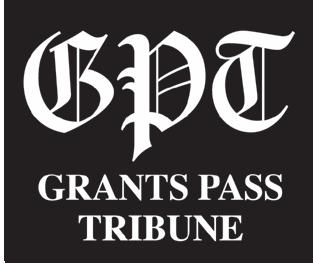
WEDNESDAY, NOVEMBER 5, 2025


WEDNESDAY, NOVEMBER 5, 2025
By John Oliver
While many children today spend their free time scrolling, gaming, or chasing the latest trends, nine-year-old Airadessa Hennings has chosen a different path—one guided by purpose, creativity, and kindness. Her journey is a heartfelt blend of imagination, faith, and compassion, brought to life through a humble act of generosity that continues to inspire everyone around her.
Airadessa’s journey began when she was just eight years old. Her grandmother bought her a small pen-making kit, not knowing that it would ignite a passion that would soon blend artistry with service. With no instruction or online tutorials to guide her, Airadessa learned the craft on her own, turning raw materials into polished works of art that she would later use to help others.
Among her many creative interests, Halloween-themed pens are her favorite. She loves experimenting with colors, textures, and designs that make each pen unique. But while her creativity shines, her motivation goes far beyond art. Airedessa’s grandparents run a nonprofit organization called Relent-

less Heroes, dedicated to supporting veterans through local outreach and community events. Inspired by their dedication, she decided to donate a portion of her sales to the foundation.
At her first tournament, she priced each handmade pen at five dollars, giving half her
earnings to Relentless Heroes and using the rest to buy more supplies. It was a humble beginning that soon grew into something much larger. When others heard of her donation, they began to match it. What started as fifty-five dollars in pen sales multiplied through the kindness of others, raising a total of two
hundred sixty-five dollars for veterans. Her generosity did not stop there. In 2024, Airadessa created a wooden American eagle that sold for five hundred dollars. The following year, she crafted a Lego American flag that was purchased for four hundred dollars by local business owner Jerrod Connor of Rogue Armament. Additional contributions from Rogue Armament and Jeff Krull of All Seasons Heating, and Mary’s BBQ brought the total to eight hundred dollars for the nonprofit. Each year, her creativity grows alongside her commitment to giving back.
When asked what part of her craft she finds most difficult, Airadessa says with a laugh that “putting the pen in the bag” is the hardest part. The most enjoyable, she explains, is coming up with new themes. From start to finish, each pen takes only a couple of minutes to complete, but those minutes are filled with focus, care, and inspiration. Her classmates, she says, don’t yet know much about her growing business, but that may soon change as her story continues to spread.
Airadessa doesn’t yet sell her pens in local
• see TURNING, page 5
By John Oliver
Another troubling pattern has emerged within Josephine County’s leadership, where attempts to dodge questions from the media are being cloaked in the language of legal intimidation. The latest example involves County Commissioner Chris Barnett, who responded to a straightforward request for transparency from the Grants Pass Tribune with a warning that he considered contact from the newspaper to be harassment — a claim that lacks any factual or legal basis.
The situation began after the Tribune sought clarification regarding a writer named “Shirley Johnson,” identified in an article Barnett had circulated. Neither the Tribune nor other local news outlets could verify that such a reporter existed or find any public contact information for her. The inquiry to Barnett was professional and courteous, requesting that Johnson reach out to the newspaper to confirm her involvement in the story and to ensure accuracy in local reporting.
Instead of providing clarification, Commissioner Barnett replied with an email labeling the request as harassment and instructing that he not be contacted by any means. He cited prior litigation, though no restraining order exists and no current court action restricts communication between the commissioner and the press. His response, signed in his official capacity as Vice Chair of the Board of County Commissioners, was later described by legal experts as an overreach

of authority and an attempt to use his position to silence accountability.
Under Oregon law, such behavior raises significant concerns. ORS 244.010 defines public service as a public trust, requiring transparency, accessibility, and integrity from elected officials. ORS 192.314 further guarantees the public’s right to access information from public bodies. While the law does not obligate commissioners to grant every interview, it reinforces the duty to act in good faith and maintain open communication with the public and the press. Barnett’s warning email stands in sharp contrast to these principles.
The term “lawfare,” meaning the weaponiza-
tion of legal language and threats to suppress oversight, has increasingly entered the local lexicon to describe the conduct of certain county officials. By framing legitimate media inquiries as harassment, officials attempt to intimidate journalists, delay investigations, and discourage public scrutiny without ever addressing the substance of the questions. It is a strategy that undermines democracy by turning the law into a shield for political insecurity—something Commissioner Barnett appears to have perfected.
Commissioner Andreas Blech has also reportedly cited vague “legal advice” as justification for avoiding communication with the press. Together, their actions have created a climate of avoidance that runs counter to the spirit of open government. These behaviors reveal not legal prudence but a deep discomfort with accountability. When officials respond to legitimate questions with hostility or legal posturing, it raises the question of what they are trying to hide.
The Tribune, like all responsible media, has a duty to verify information and ensure that public statements by elected officials are accurate. Requests for clarification are not harassment; they are the foundation of factual reporting. The public deserves confidence that its local government operates transparently and that officials are not hiding behind legal jargon to escape uncomfortable questions.
Barnett’s response, reflects a misunderstand-
ing of both law and public duty. There is no Oregon statute that allows an elected official to unilaterally forbid contact from a journalist or constituent absent a court order. Nor does defamation litigation, past or present, erase the public’s right to question elected leaders about their actions. Public officials remain accountable to every citizen — including members of the press.
This incident highlights a broader issue facing small communities across Oregon. As local media outlets continue to hold government accountable, some officials appear to be growing more defensive and less transparent. The relationship between press and power is often tense, but that tension is vital to a functioning democracy. Attempts to silence that tension through threats or intimidation erode the foundation of public trust.
It is worth remembering that freedom of the press is not a courtesy extended by government; it is a constitutional guarantee. Efforts to label press inquiries as harassment not only misrepresent the
• see USING, page 5

By John Oliver
In the latest chapter of Josephine County’s escalating political tension, a new website and public messaging campaign have surfaced defending embattled Commissioners Chris Barnett and Andreas Blech against a citizen-led recall effort. Promoted as a factual “breakdown” of the recall claims, the material reads more like a coordinated counterattack than an impartial explanation—an attempt to turn legitimate community grievances into a story of victimhood and conspiracy. Yet beneath the surface of the county’s own spin lies a deeper concern: that misinformation is being amplified, not corrected, by those in charge of maintaining public trust.
The website claims Breaking Down the Recall Claims Individually, presents itself as a factual rebuttal to each allegation filed in the ongoing recall petition. Its tone is combative and dismissive, identifying recall volunteers as members of “Rogue Indivisible” and “Citizens for Responsible Government,” while accusing both groups of “misleading the public.” The very first paragraph frames the recall as a partisan witch hunt led by disgruntled insiders, suggesting that the petition’s author, Jim Goodwin, is motivated by revenge after taking a severance package from the county. The site promises to “rebut each of Jim’s claims point by point,” but instead of transparency, it delivers a carefully crafted political defense—one that selectively omits key facts and replaces them with emotional rhetoric.
A prime example of the county’s mismanagement is the $700,000 “voluntary resignation program,” which commissioners touted as a “strategic initiative” to reduce long-term costs. In truth, the program accomplished the opposite. It failed to save taxpayers a single dollar, drained county funds, and left critical operational gaps unaddressed. The resulting vacancies have crippled multiple departments, with Code Enforcement among the hardest hit, now unable to adequately respond to complaints or uphold county ordinances. What was promised as a move toward efficiency has instead become an enduring burden, eroding public services and institutional stability. To make matters worse, the county may still face potential legal challenges stemming from terminations and layoffs carried out without proper justification. Their claims go further, praising the buyout

as a “dignified exit option” and insisting that the money has already been “recouped.” Yet no public record or independent audit supports that claim. The absence of evidence is not an oversight—it’s a pattern. From the start, the commissioners have refused to disclose clear accounting for the program’s cost, or any concrete analysis of its impact on county operations. What began as a supposed reorganization has turned into a costly mistake with invisible consequences. Today, the county operates with fewer employees, fewer services, and far less accountability.
Meanwhile, the website’s framing of other controversies follows the same playbook— downplay the facts, shift the blame, and recast criticism as a personal attack. When residents raised concerns about the board’s decision to delegate authority to one unelected commissioner, the response was to invoke a “deep state” within county staff that supposedly tried to control policy. That phrase, borrowed from national conspiracy rhetoric, has no place in serious local governance. The suggestion that long-serving employees were secretly undermining elected officials is unsupported by any public evidence. What it does accomplish, however, is to create a convenient enemy: a faceless bureaucratic cabal used to justify centralizing power and silencing internal dissent.
The anti-recall narrative also attempts to rewrite the history of Commissioner Barnett’s $4.8 million elder-abuse judgment upheld by the Oregon Supreme Court in 2024, and again in 2025. The website insists this lawsuit was “manufactured,” unrelated to Barnett personally, and rooted in someone else’s wrongdoing. But court documents tell a different story. The
judgment, while civil rather than criminal, was not fabricated; it was the result of a prolonged legal process that found Barnett’s business entity responsible for financial misconduct. Attempting to recast the ruling as political “lawfare” not only distorts reality but insults the legal system itself.
Equally problematic is the revisionist telling of the Grants Pass Library lease dispute. The board’s January 2025 vote to terminate the library district’s lease sparked public outrage and confusion over whether the library would be evicted. The new statement now claims the “lease was finalized” and “mutually beneficial,” portraying the episode as a triumph of cooperation. What it omits is that the county’s actions created months of instability and public distrust. Only after sustained pressure did the board backtrack, with Barnett later boasting of his role as “negotiator.” To rewrite that reversal as foresight is not transparency—it’s narrative laundering.
When the website addresses allegations of silencing citizens and journalists, the tone grows authoritarian. It argues that removing people from public meetings is “not a violation of First Amendment rights” but simply enforcing the rules. That argument ignores a larger pattern; critics, reporters, and even former city officials have repeatedly been cut off, interrupted, or escorted out during sessions. Rather than engage with dissent, the board has treated criticism as disruption, creating an atmosphere of fear and hostility. The right to speak in a public meeting is not “open mic night,” but it also isn’t conditional on agreeing with those in power.
Taken together, the website’s message paints a disturbing picture of how Josephine


County’s leadership views its constituents. It isn’t government defending facts; it’s an administration defending itself. The recall exists precisely because residents have grown tired of this pattern of deflection over dialogue, control over cooperation, and personal loyalty over public service. The citizens organizing the recall are not part of a “deep state” or “political mob.” They are voters who have watched their county’s operations erode under poor management and secrecy.
The $700,000 buyout was not an isolated misstep—it was the culmination of a leadership philosophy that prioritizes optics over substance. Departments once staffed by experienced professionals now operate at skeleton levels, if at all. Building inspections are delayed. Code enforcement has virtually vanished. County residents who call for help are often told that “there’s no one available.” These outcomes are not the result of political sabotage; they are the predictable consequence of short-sighted governance.
As taxpayers, the public deserves transparency not only in where money is spent but in how decisions are made. Yet instead of open dialogue, they are given polished statements that deny any wrongdoing. Instead of answers, they receive accusations that dissenters are liars. And instead of accountability, they get public relations disguised as fact sheets. For commissioners to allow or endorse such messaging is to further erode trust in local government.
The recall, at its core, is not about partisanship or personality, it is about restoring confidence that public officials serve the people, not themselves. Every time the county’s leadership releases another spin-laden statement, it validates the very reasons residents are demanding change. Transparency cannot exist in a culture that treats truth as an inconvenience.
What the anti-recall website demonstrates most clearly is not the innocence of those in office, but their fear of accountability. By promoting misinformation under the guise of explanation, the county has turned political defense into public deception. The cost of that deception—both financial and moral—is now borne by the citizens who must live with the consequences of a government that refuses to own its mistakes. In the end, the recall isn’t just a response to mismanagement; it’s a referendum on honesty itself.





Tired of doing everything "right" and still feeling exhausted, bloated, and stuck?
At Elysian Women's Wellness, we specialize in helping women 35–55 balance their hormones, heal their metabolism, and lose stubborn weight without crash diets or two-hour workouts.
We use our Metabolic Optimization Method to help you feel like you again.
• Functional & traditional lab work
• Sustainable weight loss
• Hormone-friendly exercise & nutrition
• Expert support & accountability
By John Oliver
Oregon has joined a coalition of more than twenty states in a legal challenge against the Trump administration over a newly issued federal rule that restricts eligibility for the Public Service Loan Forgiveness Program. The lawsuit, filed in federal court this week, argues that the U.S. Department of Education has overstepped its authority by redefining what constitutes a qualifying public service employer. State leaders contend that the rule could unfairly strip eligibility from public servants and nonprofit employees who rely on student loan relief as part of their compensation and long-term financial stability.
The Public Service Loan Forgiveness Program, established by Congress in 2007, was designed to encourage professionals to enter and remain in public service positions. Teachers, nurses, firefighters, and thousands of nonprofit employees across Oregon have used the program as a lifeline, counting on federal loan forgiveness after a decade of qualifying work and payments. The newly enacted rule changes that landscape by allowing the Department of Education to disqualify entire categories of employers if they are deemed to have what the rule calls a “substantial illegal purpose.”
While the administration claims this measure is intended to prevent misuse of federal funds, Oregon and its fellow plaintiffs argue that the rule is vague, politically motivated, and punitive toward certain organizations. It grants sweeping discretion to federal officials

to determine which nonprofits or agencies qualify for the program, potentially excluding those engaged in work that conflicts with federal policy positions. Critics of the rule say it could target organizations that serve undocumented immigrants, provide gender-affirming care, or advocate for social justice causes. The implications for Oregon are significant. The state’s nonprofit sector is deeply integrated into community life, supporting everything from housing initiatives to healthcare and educational outreach. Many of these organizations depend on their eligibility under the Public Service Loan Forgiveness Program to attract and retain skilled workers. If those employers are suddenly deemed ineligible, it could have far-reaching consequences for staffing and recruitment in fields already
struggling with shortages. Public educators, healthcare workers, and government employees could see their long-term financial plans disrupted if the service years they have already completed no longer count toward forgiveness.
The rule is scheduled to take effect in July 2026, leaving states and organizations little time to adjust if it stands. Oregon’s lawsuit, filed alongside states including Washington, California, New York, and Illinois, seeks to block the rule before implementation. The states argue that Congress, not the Department of Education, determines who qualifies for loan forgiveness, and that this new rule undermines the intent of the law by injecting ideological considerations into a program meant to serve all public workers equally.
From page 1
stores or online, but plans are underway to feature them on the Relentless Heroes website. She also hopes to expand to online marketplaces like Etsy or eBay. Her dream is simple yet powerful: to continue helping veterans while sharing her art with a wider audience.
When asked who she would most like to give one of her pens to, Airadessa doesn’t hesitate. Her answer is her grandmother, the person who first believed in her and inspired her creativity. That answer captures the heart of who she is—a young girl guided by faith, family, and a spirit of gratitude.
Airadessa Hennings represents the very best of today’s youth. She reminds us that kindness and generosity can start at any age, that art can carry a message, and that one small act can ripple through a community in ways far greater than imagined. Through her creativity and her heart for others, she shows that even the smallest hands can build something truly extraordinary.


For southern Oregon, where government agencies, hospitals, and nonprofits play vital roles in community stability, the rule’s effects could be felt especially hard. Many workers in Grants Pass, Medford, and Ashland choose lower-paying service jobs because of the promise of eventual loan forgiveness. Removing that incentive, or making eligibility uncertain, could make it even harder for local institutions to fill critical positions in education, public health, and emergency response.
At the center of the dispute lies a broader question about fairness and governance. The rule challenges the long-standing understanding that public service, regardless of political alignment, is a public good. Oregon’s participation in the lawsuit reflects both an economic concern and a moral one: whether federal aid should be distributed based on uniform standards or filtered through ideological judgment. The outcome of this case will not only determine the future of loan forgiveness for thousands of Oregonians but could also set a precedent for how far executive agencies can go in reshaping programs established by Congress.
As the case moves through the courts, public service workers across Oregon wait anxiously for clarity. The lawsuit may take months or even years to resolve, but its stakes are immediate. For those who have dedicated their careers to the public good, the question is no longer just about financial relief—it is about whether their service will continue to be valued and recognized equally under the law.
From page 1
law but also expose the fragility of those unwilling to face scrutiny. In public office, transparency is not optional. It is the very measure of leadership.
Barnett has still not connected us with his supposed journalist, Shirley Johnson. We had no other way to reach him except through his official county position. As the registered owner of the media outlets listed under his name with the Oregon Secretary of State, it is his responsibility to manage those entities and ensure accountability for their content. Because the article in question contained criticism and potentially defamatory statements, we sought clarification and an opportunity to contact Ms. Johnson directly. However, since no public contact information exists, we extend this invitation here: Shirley, if you are reading this, please call me at 541-244-1753.
Commissioner Barnett’s handling of this matter continues to attract public scrutiny and raises ethical concerns about transparency and accountability in his county leadership. As community awareness grows, residents may begin to question whether those entrusted with authority are using their positions to serve the public or to shield themselves from it. The people of Josephine County deserve open answers, not legal intimidation. True leadership faces questions with honesty and courage, not threats or avoidance.




By Ellen Ward
The Las Vegas Metropolitan Police Department has unveiled what it calls the nation’s largest police fleet of Tesla Cybertrucks, marking a high-tech shift in law enforcement operations while raising questions about private funding and the future of policing. The new fleet, made possible through a multimillion-dollar dona tion from Silicon Valley venture capitalist Ben Horowitz and his wife, Felicia Horowitz, signals a turning point in how electric vehicles may be integrated into large-scale public safety roles. According to officials, ten Tesla Cybertrucks, valued between eighty thousand and one hun dred fifteen thousand dollars each, have been fully equipped with law enforcement modifica tions, including emergency lighting, reinforced bodies, and tactical storage for specialized gear. The donation, valued at approximately two point seven million dollars, was presented as a gift to the department to enhance safety, reduce fuel costs, and demonstrate the potential of electric vehicle technology in urban policing.

The public response has been divided. Some residents see the Cybertrucks as a symbol of progress and innovation, positioning Las Vegas as a leader in sustainable law enforcement. Others view the armored, angular vehicles as an extension of police militarization, more suited for spectacle than service. Observers have noted that the trucks’ bold design, while futuristic, may also affect how communities perceive officers in an era of heightened sensitivity toward police presence.
The Las Vegas Metropolitan Police Department has emphasized that no public tax funds were used for the purchase or outfitting of the vehicles. The agency said roughly four hundred officers have already completed training on Cybertruck operations and charging protocols. The vehicles will be distributed across area commands throughout Clark County, with the first units scheduled for deployment this month.
Each vehicle has been customized for law enforcement duty by Unplugged Performance, a California-based engineering firm specializing in Tesla modifications. The company reinforced the trucks with push bars, protective undercarriage guards, and advanced braking systems, tailoring the electric pickups for patrol work, search and rescue, and high-risk response scenarios. The department also highlighted that the trucks’ unique stainless-steel body structure and rapid acceleration could improve officer safety and response times during emergencies.
Horowitz family, known for philanthropy and technology investments, has reportedly donated over seven million dollars to the department in recent years, funding equipment such as drones and license plate readers. Critics argue that such donations, while generous, blur the lines between public service and private interest, particularly when the gifts involve advanced surveillance or high-profile technology.
Another discussion surrounding the Cybertruck fleet focuses on cost efficiency and sustainability. The department projects that transitioning to electric vehicles could save tens of thousands of dollars per truck over a five-year period through lower maintenance and fuel costs. However, those projections depend on charging costs, battery longevity, and performance under extreme Nevada heat. Skeptics question whether the durability of the Cybertruck, still new to the consumer market, can meet the demanding operational standards of a large metropolitan police force.
There are also data and privacy considerations. Tesla vehicles are known for their extensive sensor and connectivity systems, which transmit diagnostic and performance data to the company’s servers. Privacy advo-

cle data will remain under its control and will not be shared with Tesla or any third parties, though oversight details remain limited.
Las Vegas now stands as a test case for whether electric trucks can effectively and economically serve in the high-demand world of municipal policing. If successful, the program could inspire departments nationwide to follow suit, accelerating the integration of electric vehicles into public safety fleets. If not, it may fuel debate over the balance between innovation, accountability, and the proper role of private wealth in public institutions.













Advertise with The Grants Pass Tribune!
Show
By John Oliver
The Grants Pass City Council took decisive action Monday morning, voting 5-3 to disqualify Pathways to Stability from the City’s Addressing Homelessness Grant Program and advance negotiations with Elk Island Trading Company, the second-highest scoring applicant. The decision followed months of public scrutiny, questions of procedural fairness, and concerns about the accuracy of information presented in Pathways’ original grant submission.
The workshop marked a pivotal moment in the City’s ongoing effort to establish a compliant and transparent approach to homelessness funding. Council members cited the need to uphold public contracting laws and to ensure all applicants are evaluated by the same rules and deadlines. The final vote underscored a message of accountability that many in the community had demanded since the application process began earlier this fall.
Pathways to Stability’s application had faced mounting challenges since October, when discrepancies surfaced between claims made in the group’s proposal and official communications from Josephine County. The organization stated that it was in negotiations to acquire a property at 1798 NE N Street, yet County correspondence later contradicted that assertion. The issue raised questions about eligibility and compliance with City guidelines requiring verification of site control for proposed projects.
Monday’s vote came after weeks of deliberation among councilors, staff, and residents who attended meetings, submitted public comments, and called for a fair resolution. While some expressed concern about the City’s ability to meet state and federal funding re-


quirements, others argued that transparency and adherence to law must remain non-negotiable principles in any grant process.
Elk Island Trading Company, which finished as the runner-up in the City’s scoring matrix, now moves forward as the recommended awardee. The company’s proposal focuses on transitional support programs aimed at providing stability, job placement, and basic services for those experiencing homelessness within city limits. Officials indicated that negotiations and formal contracting will proceed under the same procedural framework as before, ensuring compliance with City procurement standards.
The Council’s decision also has broader implications for how Grants Pass manages its partnerships in addressing homelessness. City leaders have acknowledged that past missteps and unclear communication contributed to community frustration and skepticism. Monday’s outcome may help

rebuild public confidence in the process by reaffirming that accountability extends to all applicants, regardless of intent or reputation.
As the City prepares to work with Elk Island Trading Company, questions remain about long-term strategy, coordination with county and state partners, and the capacity of local organizations to deliver sustainable outcomes. Still, the unanimous sentiment among councilors was that maintaining the integrity of the process outweighed any shortterm complications.
The vote represents more than an administrative correction. It signals a renewed commitment to transparency, fairness, and the rule of law in how public funds are awarded and monitored. Whether it leads to tangible improvements in the City’s homelessness response remains to be seen, but for many, the decision marks an essential step toward restoring public trust in Grants Pass governance.








Posting Date November 3, 2025
Posting November 3, 2025
By: Jay Meredith, CPA Investigative Journalist
“The BCC Weekly” column was born earlier this year out of all kinds of actions being taken by the Josephine County Board of County Commissioners (BCC) that were being done behind closed doors, when traditionally or by law most of these discussions and decisions should be made in public meetings. And the Commissioners repeatedly refused to answer questions from both the public and the media.
Therefore, in many cases the only way to get answers and report facts was to submit public records requests to the County. Submitting records requests to Josephine County in 2025 has been a painfully slow and expensive process. In my personal opinion, the County has intentionally delayed or illegally dismissed many of the records requests that we have submitted this year. In a few cases, County officials have (in my opinion) overestimated the time it would take for staff to complete the records requests, intentionally making the request unaffordable.
Like many other things with Josephine County, the buck stops with the County Commissioners. Had they been more transparent and willing to speak to the media and answer questions from citizens, it would be business as normal. But 2025 has been anything but normal.
A records request earlier this year proved that County Commissioners did no financial analysis before spending over $700,000 on a voluntary resignation program. We lost 18 County employees under this costly program, and according to our sources almost all positions have been refilled or are budgeted to be refilled in some form or fashion. Facing a recall, Commissioners Barnett and Blech have said this was a big money saver. The truth appears to be quite the opposite.
We have a pending records request to get formal details about the voluntary resignation program that was approved in February of this year. Eight months after the approval of this program we still don’t have concrete details, only rhetoric from the County Commissioners which appears to be wrong according to other County officials.
One records request submitted earlier this year showed that the cost the County was actually paying for the maintenance of the Grants Pass Library branch didn’t match statements made by County Commissioners when they prematurely cancelled the library lease in January this year. In reference to the premature lease cancellation, some made comments such as, “Everyone should pay their fair share.” Except, they didn’t even measure that properly and disregarded the County Charter requirement to support the maintenance of library branches.
Speaking of everyone should pay their fair share, a records request submitted just two weeks ago seems to have proved that the BCC’s office has long let the Josephine County Republican Central Committee (JCRCC) use the Anne Basker Auditorium for free for its monthly meetings or any other meetings they desired to have in that building. Except, there is a policy shown on the rental application

on the County’s website which says that the rental rate for political parties and nonprofits that want to use the Anne Basker Auditorium is $75 per hour with a two hour minimum.
Based on comments in a BCC meeting last week from Commissioner Blech, it seems for years the JCRCC has been allowed to use the Anne Basker for free, and Blech committed to correcting this going forward. But considering all three 2025 Commissioners as well as Michael Sellers who the Commissioners keep trying to hire to help run the BCC’s office are all active members of the JCRCC, this isn’t a good look and in my opinion could be considered illegal. Even though this records request has not been fulfilled yet, Commissioners and the previous chair of the JCRCC Holli Morton were out last week trying to justify why they were doing this…trying to get ahead of the “news,” so to speak.
One of the County public records requests we submitted a few months ago for salary and other information about the controversial promotions of Michael Sellers ended up sparking a DOJ investigation against Sellers and Commissioner Blech. The results of this DOJ investigation have not yet been announced, but based on public statements by the whistleblower in this situation, Sellers and/or Blech may be responsible for either destroying certain public records or making false statements about their existence. According to the whistleblower, both made false statements about the existence of certain public records.
Before the first of a few public records requests we submitted on this topic, and before the controversy related to the promotion of Michael Sellers about six months ago to the
controversial new position of Director of Operations for a total compensation package cost of $388,000 per year, we had insiders suggesting that we seek information related to Michael Sellers because the BCC were not being transparent about this new position and this promotion. Even though our investigation into this has been ongoing for about nine months, we still have one related records request outstanding.
And as previously reported by the Grants Pass Tribune as well as the Grants Pass Daily Courier, Commissioner Barnett’s various owned and operated “news” pages on Facebook put out what I would call an attack piece on a very well-respected local leader, Dr. Jennifer Roberts. Then when Barnett was called out by both media and local citizens regarding this ugly and inappropriate attack piece, Barnett had a writer named “Shirley Johnson” use his news pages to put out an attack piece on the Daily Courier. Barnett also refused to remove the ugly article about Dr. Jennifer Roberts when requested several times by Roberts herself.
Barnett also refused to comment to the media on his use of social media to attack local citizens. This is but one of dozens of personal attacks on local citizens put out on Barnett-controlled social media pages. Since Barnett won’t comment to the media, we had to submit yet another public records request. This latest county public records request was submitted on November 1st and an email to the BCC was necessary to accompany this request.
The email that accompanied this latest records request:
Dear Commissioner Blech, RMO staff, and Counselor Hicks,
I just submitted the following records request, which needs some further explanation. Also Commissioner Blech, you have regularly solicited comments that would be helpful to Josephine County and therefore this message also includes what I consider helpful advice.
"Please provide, by email, a digital copy of all written messages or emails to or from Chris Barnett between September 1st 2025 and November 1st 2025 with the following individuals: Tom Wilson, Shirley Johnson, Richard Smith, Brad Barimez, Jordan Mortenson, Frank Torres, Victoria Marshall, and Samantha Lacky. These are all writers for Chris Barnett's news pages on Facebook, and regularly report on County business, issues faced by the Commissioners related to County business, and issues related directly to Commissioner Chris Barnett. Written messages should include all text messages, emails, direct messages on social media or any messaging platform, and any written communication on any platform whether a County system or a private messaging system since Commissioner Barnett is regularly discussing County business on these platforms. Also, I have recorded several instances that that these platforms posted the same content at the same time as posted on official Facebook pages of the BCC and of Josephine County. Therefore, any communication related to County Business or the business of the many Facebook pages owned and
Continued on page 12 >>>
operated by Chris Barnett would be subject to disclosure in this records request because Mr. Barnett is using these platforms to discuss County business or issues related to his term as a Commissioner."
Context - In the 12 years I worked for the City of Grants Pass, for a couple years of that time I was in charge of Public Records requests. I know that any public official that discusses the business of that entity on any platform, public or private, subjects themselves to creating a public record that must be disclosed in a public records request.
I have also observed the many Facebook pages owned and operated by Chris Barnett to report on County business and the activities of County Commissioners regularly. Sometimes these pages anonymously, or by the writers I mentioned in the records request above, report stuff about the Commissioners or about Commissioner Barnett himself that could only be known if they communicated directly with Commissioner Barnett or if they were written by Commissioner Barnett himself. I have screenshots of all of this. A few times, these Facebook pages posted the exact same thing as the official Pages of Josephine County or the official Page of the Josephine County Commissioners. Again, I have proof if needed.
Even more concerning, is these Facebook pages owned and operated by Chris Barnett regularly attack, criticize, and make false statements about individuals in our community. I've personally been the subject of several of these such attacks, using false information about me...but that's not why I'm reporting this or seeking these records.
And the most concerning thing of all to
me, is Chris Barnett attempted to anonymously post very ugly and false information about two individuals who live in Josephine County on a public Facebook page, and was reported by the admin of that Facebook page that it was Chris Barnett himself who posted this ugly and false info. In one of them, he called a local citizen a pedophile and this individual I believe has already reported this to you and shown you the proof. I also have screenshots and proof of all this if needed.
The concern of course, is this behavior opens up Josephine County to significant liability, because as I understand Chris Barnett for much of this year has been the Commissioner responsible for official communication and social media channels of the BCC's office.
Ask yourself, if a law enforcement officer or any employee of the County were to be caught anonymously calling someone a "pedo" on Facebook, would they be subject to discipline or termination? Do you have policies that guide County employee's behavior both on the job and off the job? At the City of Grants Pass, there definitely would have been discipline and perhaps termination if an employee was caught doing the kinds of things that seem to be done online almost every week lately by either Barnett or the few select assigned moderators of the Facebook pages owned and operated by Commissioner Barnett.
And finally, Barnett or whoever is operating his Facebook "news" pages have blocked many individuals in our community from commenting or has deleted a lot of the comments on his posts. This opens up yet another level of risk for Josephine County, similar to if you were to let your friends use 3 minutes of comment time in a WBS but didn't let anyone use
their 3 minutes if they were trying to complain or criticize something.
If you don't have policies that protect the County from this type of behavior, put them in place asap. Even if you do, this all warrants an immediate investigation. The City of Grants Pass has policies that guide public officials' (employees) behaviors both on and off the job. I know elected officials have some extra protection, but as a Board you can give someone else the responsibility for all communications and you can take other actions to protect the County from these significant risks.
I would highly recommend removing Chris Barnett from any role in communications or social media until completion of the investigation and perhaps permanently depending on what you find. And as policy, I would recommend that any PR that comes from the Commissioners Office should be reviewed and approved by more than one Commissioner or that you put a staff member in charge of communications and Public Information like you had back in January of this year.
You can use the completion of this public records request as part of your needed internal investigation. And separately, please let me know if you desire to see any of the proof I have of these allegations.
As for the records request, it should not take that much time. It should only take a couple hours of Commissioner Barnett's time to look at all his emails and direct messages (both public and private systems) to and from the individuals mentioned above. Also, my research shows that some of the individuals mentioned above are not real individuals, while some of them are real individuals. Commissioner Barnett needs only look at all the direct messages to and from that small handful of

real individuals and supply the requested records from only the last 2 months.
Also please be aware that I know what some of these communications are and if they are missing from the fulfilled records request, I will know. And for further clarification just to be sure, I'm not looking for when Chris Barnett simply commented on a Facebook post or interacted with one of these individuals on a post of social media. I'm looking for direct messages or direct emails to or from Chris Barnett and the individuals listed. This could be Facebook messenger (which many people have used to communicate with Chris Barnett), text message, other direct messaging platforms, email (including personal email), and any smart phone app that acts like a messaging or text message system.
Thank you in advance for your attention to these very serious matters and this public records request. I know you will gain helpful information from the completion of this request.
Sincerely,
Jay Meredith, CPA Investigative Reporter
And so now we wait for this and several other county public records requests that we have outstanding as of today. We will keep dumping, leaking, and releasing the actual factual information as we receive it and of course we only gather information by legal means.
Here at the Grants Pass Tribune we report on facts, and due to the lack of transparency by the BCC these records requests are necessary to document those facts. Here ends this next chapter of the GPTribiLeaks. Stay tuned as there is much more to come.











